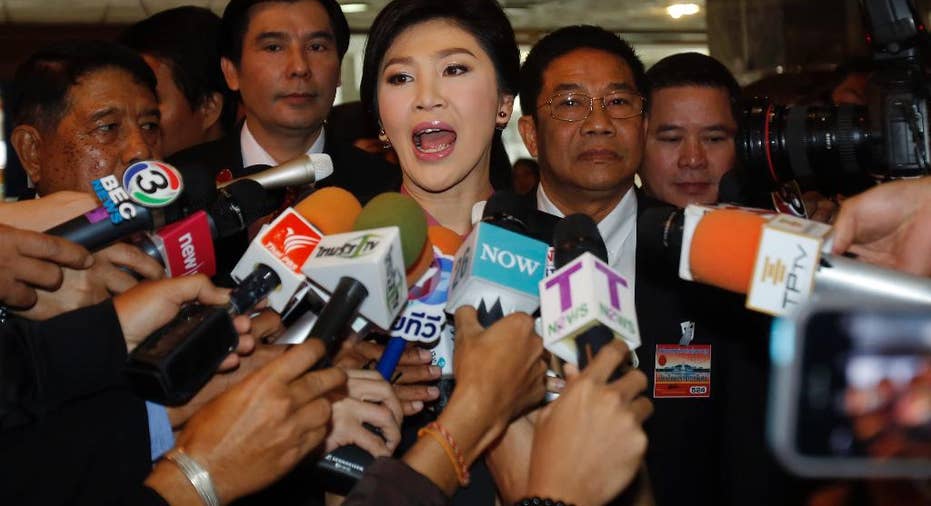Thai legislature begins impeachment hearing against ousted prime minister

BANGKOK – Thailand's military-appointed legislature began impeachment hearings Friday against former Prime Minister Yingluck Shinawatra, a move analysts say is aimed at ensuring the ousted leader stays out of politics for the foreseeable future.
The charges, dismissed by Yingluck's supporters as politically motivated, relate to her alleged role in a disastrous government rice subsidy scheme.
The lawmakers are expected to vote on their verdict by the end of the month. If impeached, Yingluck could be banned from politics for five years.
Yingluck was forced from office in early May by a court verdict that declared she had illegally transferred the nation's security chief. That verdict came one day before Thailand's anti-graft commission indicted her on charges of dereliction of duty in overseeing a widely criticized rice subsidy program.
Yingluck, who came to power in a landslide election in 2011, had insisted for months that the Southeast Asian nation's fragile democracy was under attack from protesters, the courts, and finally the army, which staged a May 22 coup that wiped out the remnants of her administration.
Yingluck's brother, Thaksin Shinawatra, was also ousted by the army in a 2006 coup.
Analysts say Friday's hearing is more about the curbing the power of the Shinawatra family and keeping them out of politics. The junta has spoken of holding elections in 2015, but no date has been set.
"The impeachment is geared to keep Yingluck at bay. If she's allowed to run in the next election, there's a good chance that she might win," said Thitinan Pongsudhirak, the director of the Institute of Security and International Studies at Chulalongkorn University in Bangkok.
If Yingluck is prosecuted, however, the government "could risk incurring the wrath of the pro-Thaksin camp. At the same time, it would also deepen the polarization and divisions that we have seen in Thailand."
The National Legislative Assembly, hand-picked by the junta and dominated by active and retired military officers, will deliberate on whether Yingluck neglected her duty and failed to halt the rice subsidy program, which accumulated losses of at least $4 billion and temporarily cost Thailand its position as the world's leading rice exporter.
The scheme, under which the government paid farmers double the market price, was a flagship policy that helped Yingluck's government win votes in the 2011 general election.
Arriving at Parliament early Friday, Yingluck told reporters she was "confident" she would be exonerated and said she was "ready to clarify in every charge."
Last year, Yingluck said the anti-graft commission's deliberations in the case against her were unfairly rushed.
On Thursday, the legislature began separate impeachment hearings against a former house speaker and a former senate speaker for allegedly trying to amend the constitution, which the army suspended when it seized power.



















